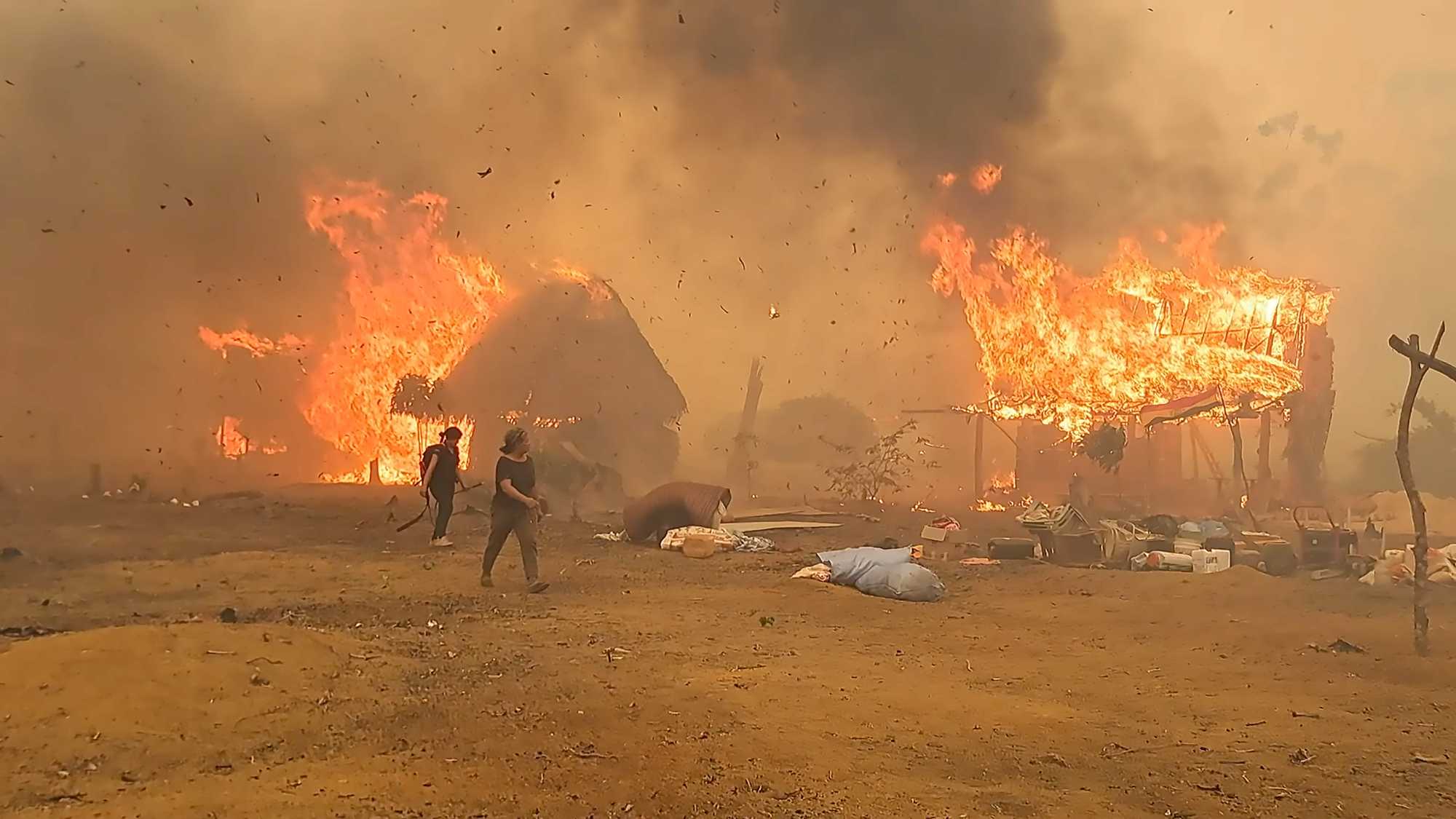Bolivia Burning: Inside a Latin American Ecocide is a 52-minute documentary from The Gecko Project that takes viewers inside one of the world’s most under-reported environmental crises: the rapid destruction of forests in Bolivia.
2024 was the worst year on record for the world’s primary tropical forests, and Bolivia lost 1.5 million hectares — more than any country except Brazil. Fires set to clear land for agriculture spiralled out of control, turning swathes of the country into an inferno.
Against this backdrop, the film follows investigators from The Gecko Project as they journey through the Chiquitano dry forest in Bolivia’s eastern lowlands — the region most deeply affected by fires and deforestation.
They set out to examine the role of two important actors in this crisis: the Mennonites, an ultra-conservative Christian group setting up “colonies” in ever more remote parts of the forest to flee the modernising forces of civilisation, and Cargill, a global agribusiness giant that claims it is committed to help ending deforestation.
Their journey exposes the human toll of what Bolivian NGO TIERRA calls the worst environmental disaster in the country’s history. Sources featured in the film say the 2024 crisis is a clarion call to end the “ecocidal” government policies that enabled it.
“We’re on the edge of a precipice,” says Alcides Vadillo of TIERRA. “If we continue the same way, we’re going to fall into that precipice. So we must change course, if we want to survive.”
Key revelations
A policy gamble that set Bolivia on fire
Bolivia’s government once won praise for its progressive environmental credentials, with two laws enshrining the rights of “Mother Earth” in 2010 and 2012. But since then, a wave of deregulation and policies aimed at expanding agriculture have incentivised deforestation and provided impunity for environmental crimes. Expert sources explain how this gave rise to uncontrolled fires and skyrocketing deforestation.
The ultra-conservative Christian sect “colonising” the Chiquitano
An Anabaptist Christian denomination whose origins can be traced back to 16th century Europe, Mennonites first migrated to Bolivia in the 1950s, carving rural “colonies” out of the forest, replete with manicured lawns and picket fences. Since then they have come to play a prominent role in soy production and recent research suggests 16 percent of deforestation between 2016 and 2022 occurred in Mennonite colonies. Bolivia Burning documents how Mennonite families are searching for yet more land, with The Gecko Project discovering a freshly-established colony, where settlers are preparing to clearcut thousands of hectares of forest.
Big-ag cashes in as the world looks the other way
Soy production, along with cattle ranching, is one of the leading drivers of deforestation in Bolivia. Cargill, the US-based commodities giant and one of the largest buyers of Bolivian soy, has pledged to eliminate deforestation from its supply chains by 2025 in the Amazon and other regions. But in Bolivia’s overlooked Chiquitano dry forest, that deadline stands at 2030. In Bolivia Burning, The Gecko Project visits a Mennonite colony that has cleared thousands of hectares of forest in recent years and continues selling soy and other products to Cargill.
Indigenous communities suffering - and a source of hope
The film features indigenous people who marched from the Chiquitano to the centre of Santa Cruz de la Sierra, Bolivia’s biggest city, to draw attention to the devastation the fires have wrought on their lives. Later, indigenous Monkoxi leader Maria Choré recounts the long, uphill struggle to secure legal titles to their ancestral territory. Since obtaining legal title, there has been very little forest lost in the community’s land, in stark contrast to the wave of destruction that is advancing around them.
The film was released in Bolivia in June through screenings organised by academics, politicians and activists. Alvaro Garcia, who features in the film, has appeared extensively on Bolivian media to discuss the film.
.jpg)
.jpg)
.jpg)
.jpg)
We are encouraging NGOs, universities, and community groups to host discussions and screenings in Bolivia, Europe and beyond, and can provide resources and speakers to attend events. If you would like to host one or find out more, contact info@thegeckoproject.org.
Follow us on X, Instagram and subscribe to our YouTube channel for updates on the film.
